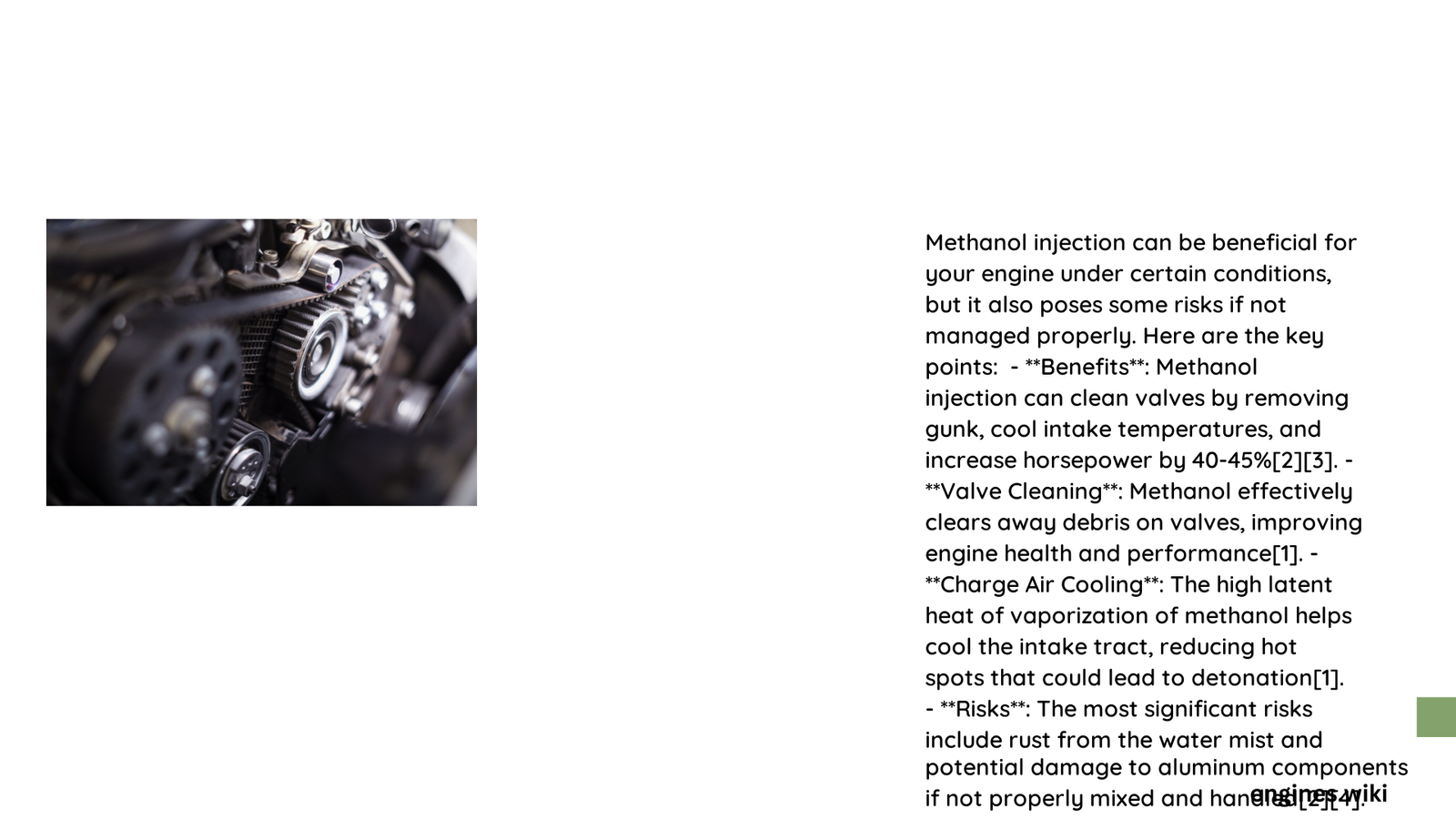Methanol injection remains a controversial topic among automotive enthusiasts, with complex implications for engine health. While some mechanics warn about potential risks, scientific evidence suggests that when properly implemented, methanol injection can actually provide significant performance benefits without causing substantial engine wear. Modern engines constructed with advanced materials can effectively handle methanol’s unique chemical properties, potentially offering enhanced cooling, reduced detonation, and improved overall engine efficiency.
What Makes Methanol Injection Controversial?
Methanol injection represents a sophisticated performance enhancement technique that introduces a precise mixture of water and methanol into an engine’s intake system. The primary goal is to reduce combustion temperatures, prevent engine knock, and potentially increase horsepower.
Does Methanol Cause Engine Corrosion?
| Material | Corrosion Resistance | Methanol Impact |
|---|---|---|
| Stainless Steel | High | Minimal |
| Carbon Steel | Moderate | Low |
| Aluminum | Moderate | Negligible |
Key findings indicate that modern engine materials demonstrate remarkable resistance to methanol’s potentially corrosive properties. Automotive-grade components are specifically designed to withstand chemical interactions, minimizing long-term degradation risks.
What Performance Benefits Can You Expect?

Methanol injection offers several compelling advantages:
- Increased Horsepower: Potential gains of 15-25 horsepower
- Enhanced Cooling: Reduces intake air temperatures
- Detonation Prevention: Allows more aggressive tuning
- Cost-Effective Alternative: Cheaper than high-octane race fuels
How Does Methanol Impact Engine Longevity?
Contrary to common misconceptions, properly implemented methanol injection can actually contribute to:
- Reduced carbon buildup
- Cleaner intake systems
- More consistent combustion temperatures
- Potential extended engine component life
What Are the Critical Installation Considerations?
Successful methanol injection requires:
- Professional system installation
- Precise mixture ratios
- Regular maintenance
- Comprehensive engine tuning
Can Methanol Injection Damage Your Engine?
Potential risks include:
- Improper system calibration
- Low-quality methanol mixtures
- Inconsistent flow rates
- Lack of professional maintenance
Real-World Performance Evidence
Case studies demonstrate remarkable outcomes:
- Mitsubishi Evolution X: 20 wheel horsepower gain
- Ford F-150: Improved throttle response
- BMW M3: Enhanced high-performance characteristics
Expert Recommendations
Professional mechanics suggest:
- Use high-quality methanol mixtures
- Implement professional tuning
- Regular system inspections
- Monitor engine performance metrics
Technical Specifications to Consider
- Recommended Mixture: 50% water, 50% methanol
- Ideal Temperature Range: -20°F to 150°F
- Typical System Cost: $400-$600
- Expected Performance Gain: 15-25 horsepower
Conclusion
Methanol injection is not inherently bad for your engine when implemented correctly. The key lies in professional installation, quality components, and consistent maintenance.
Final Verdict
✅ Potential Performance Enhancement
✅ Minimal Long-Term Engine Wear
✅ Cost-Effective Modification
References:
1. CleanMPG: Intake After 250,000 Miles
2. EcoModder: Water/Methanol Potential
3. AEM Electronics: Injection System Guide
